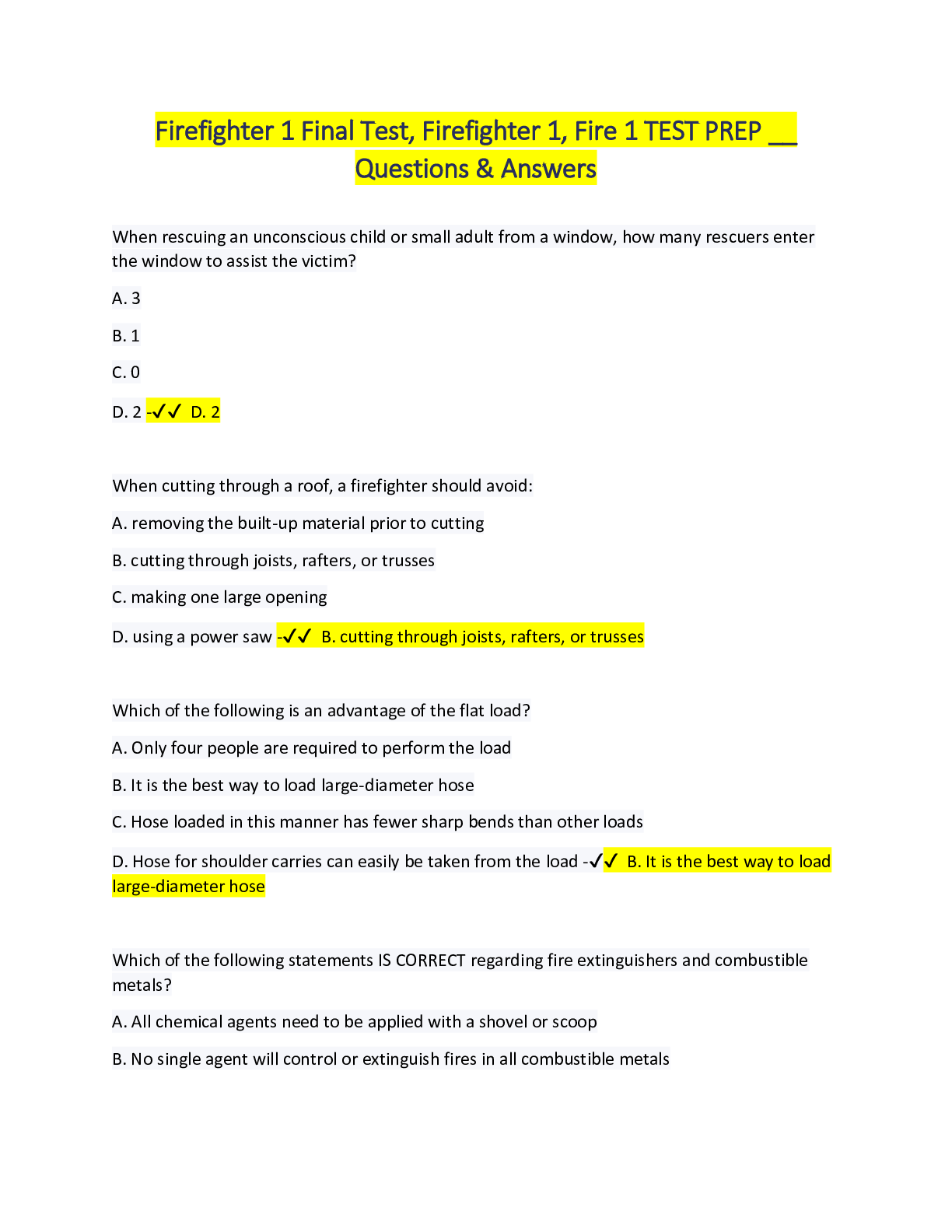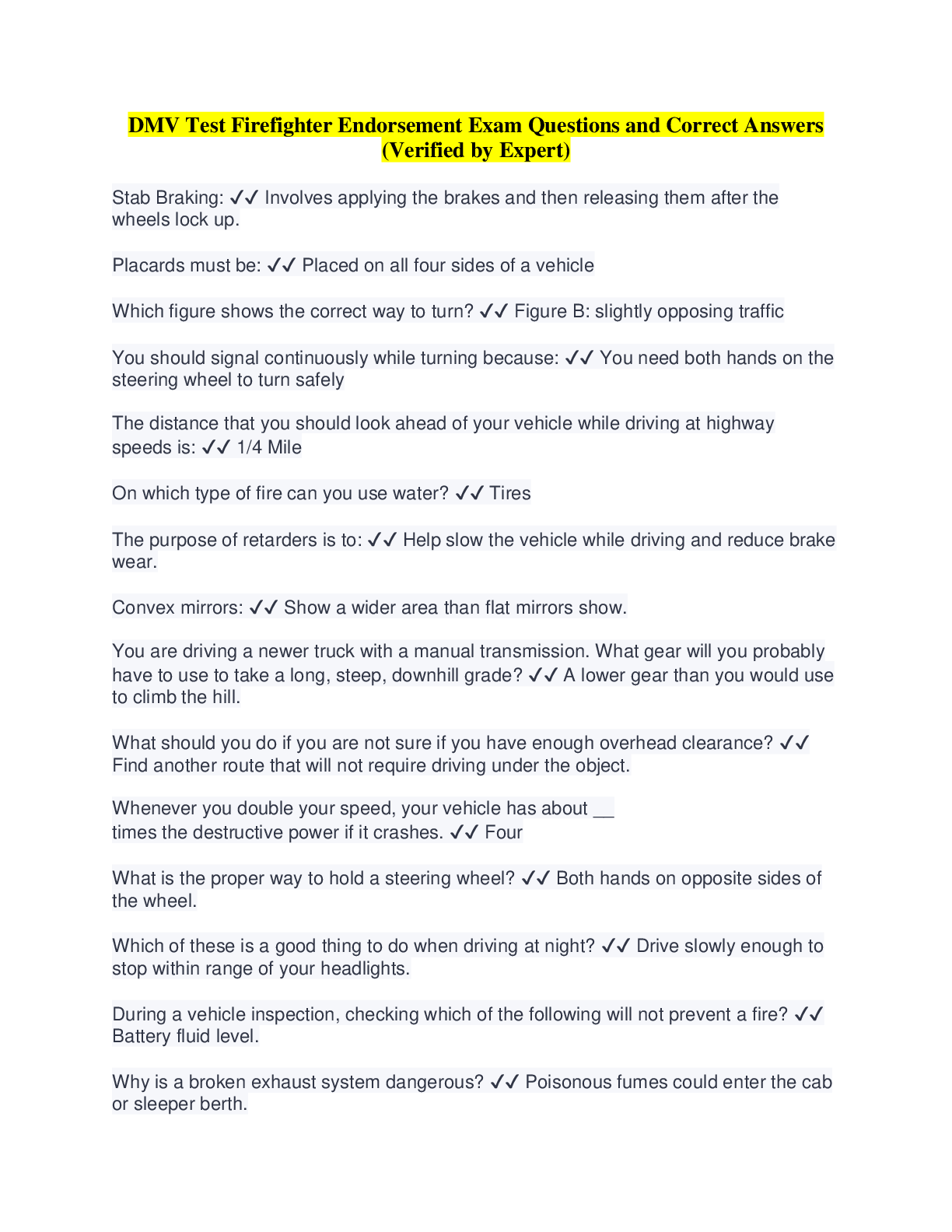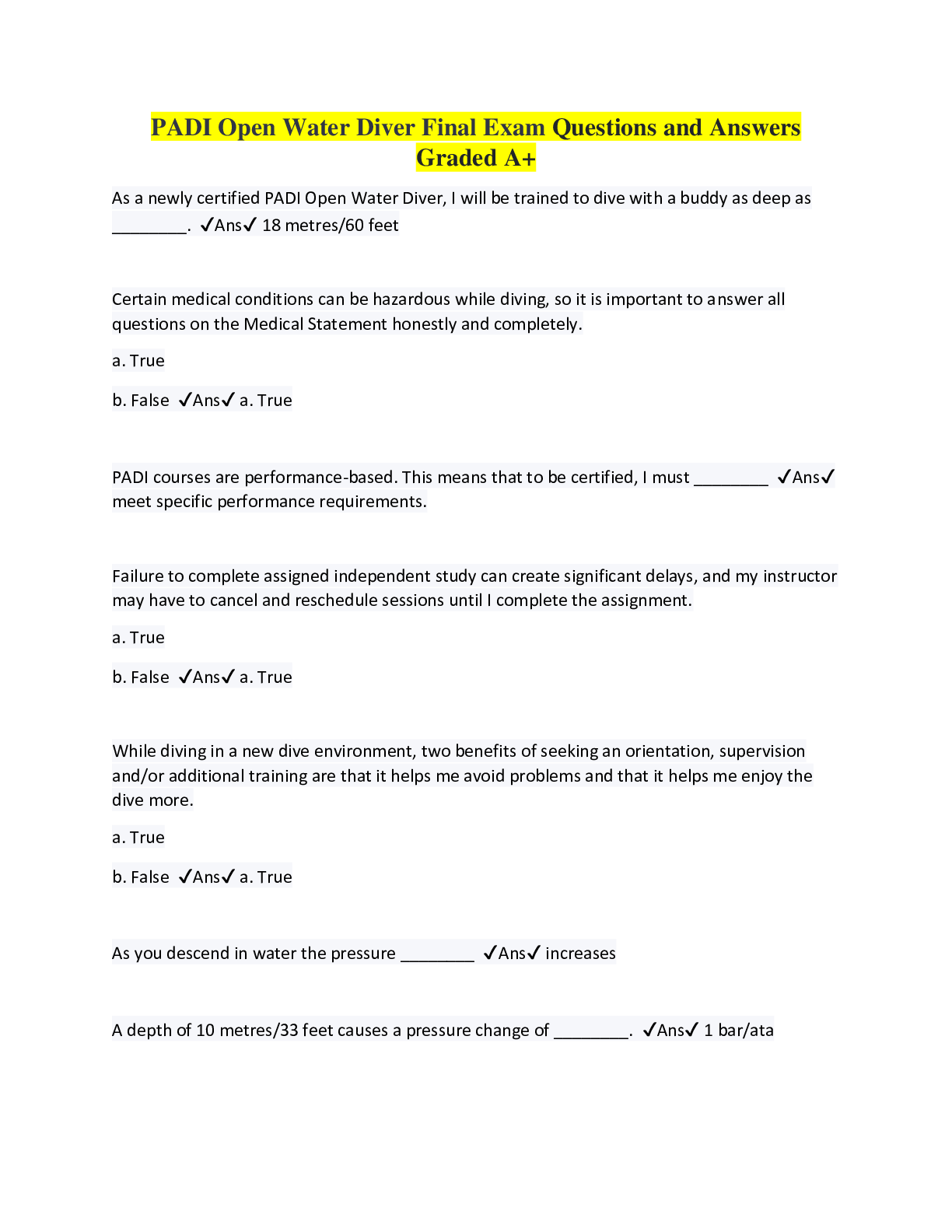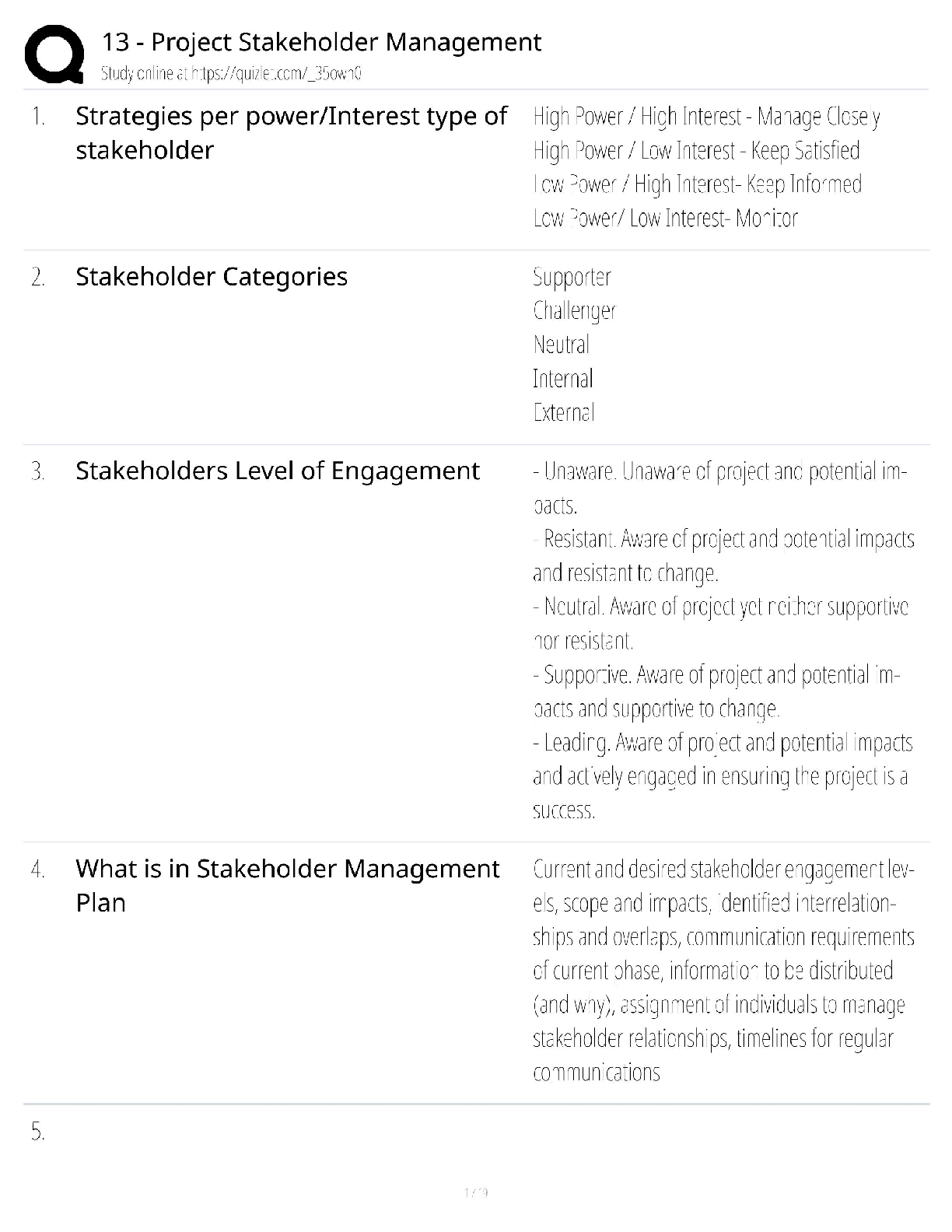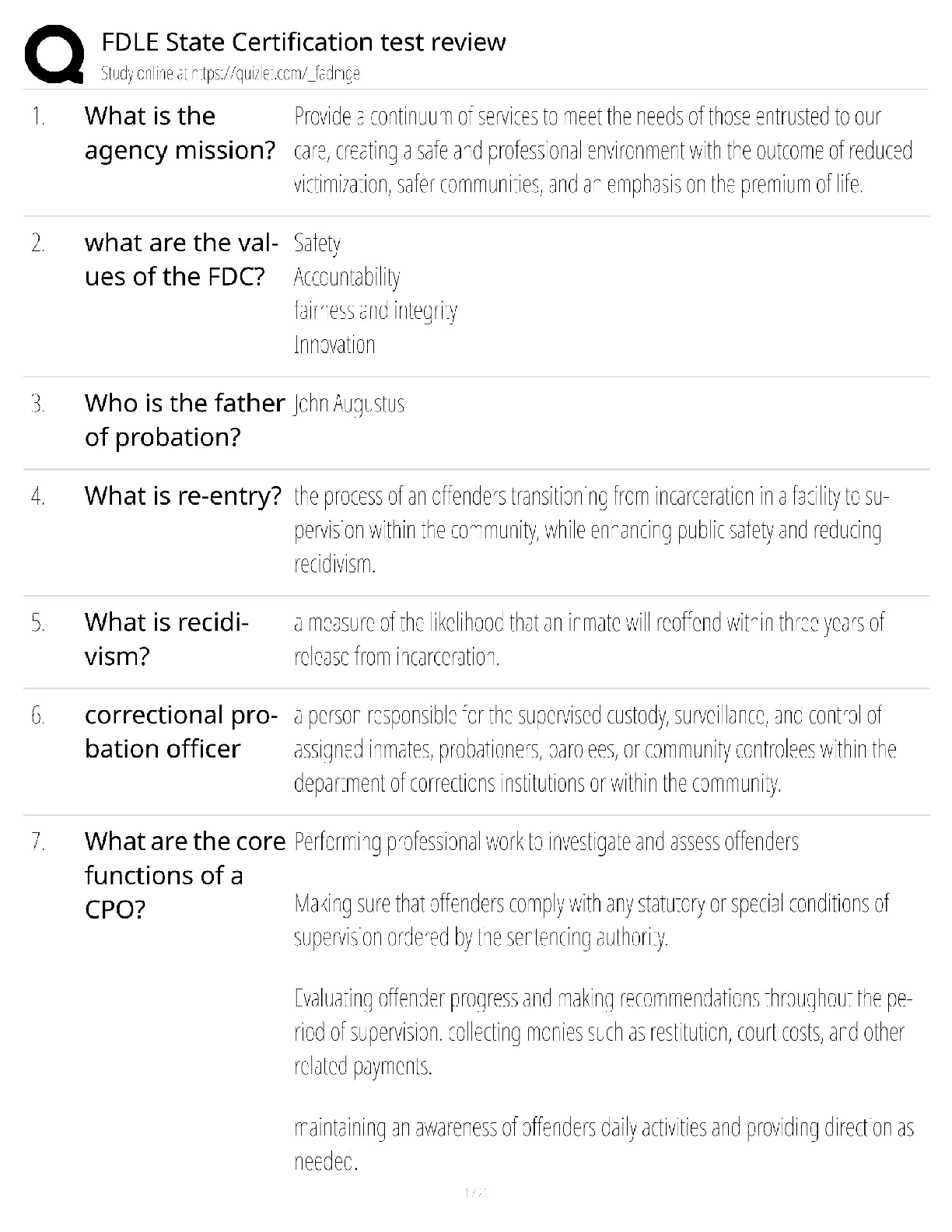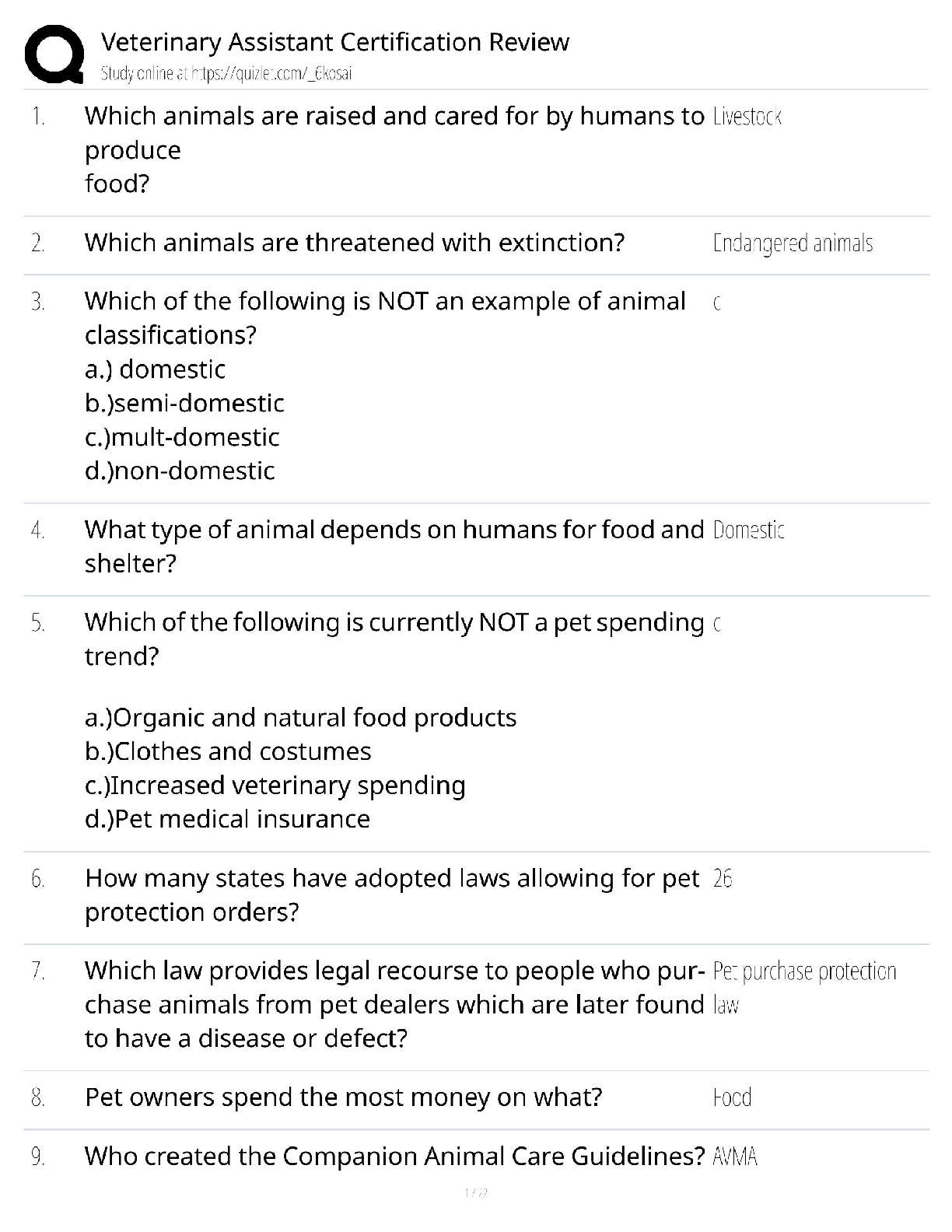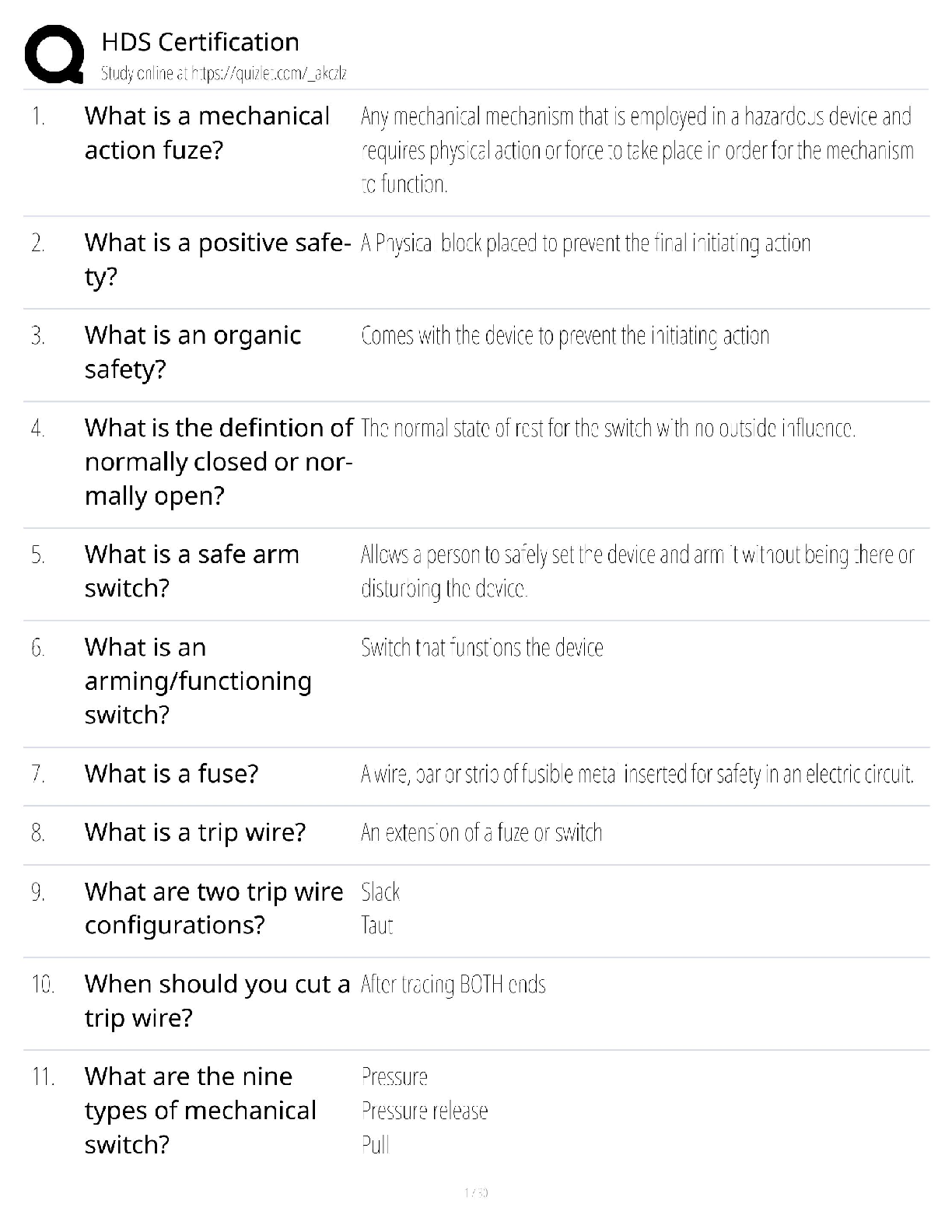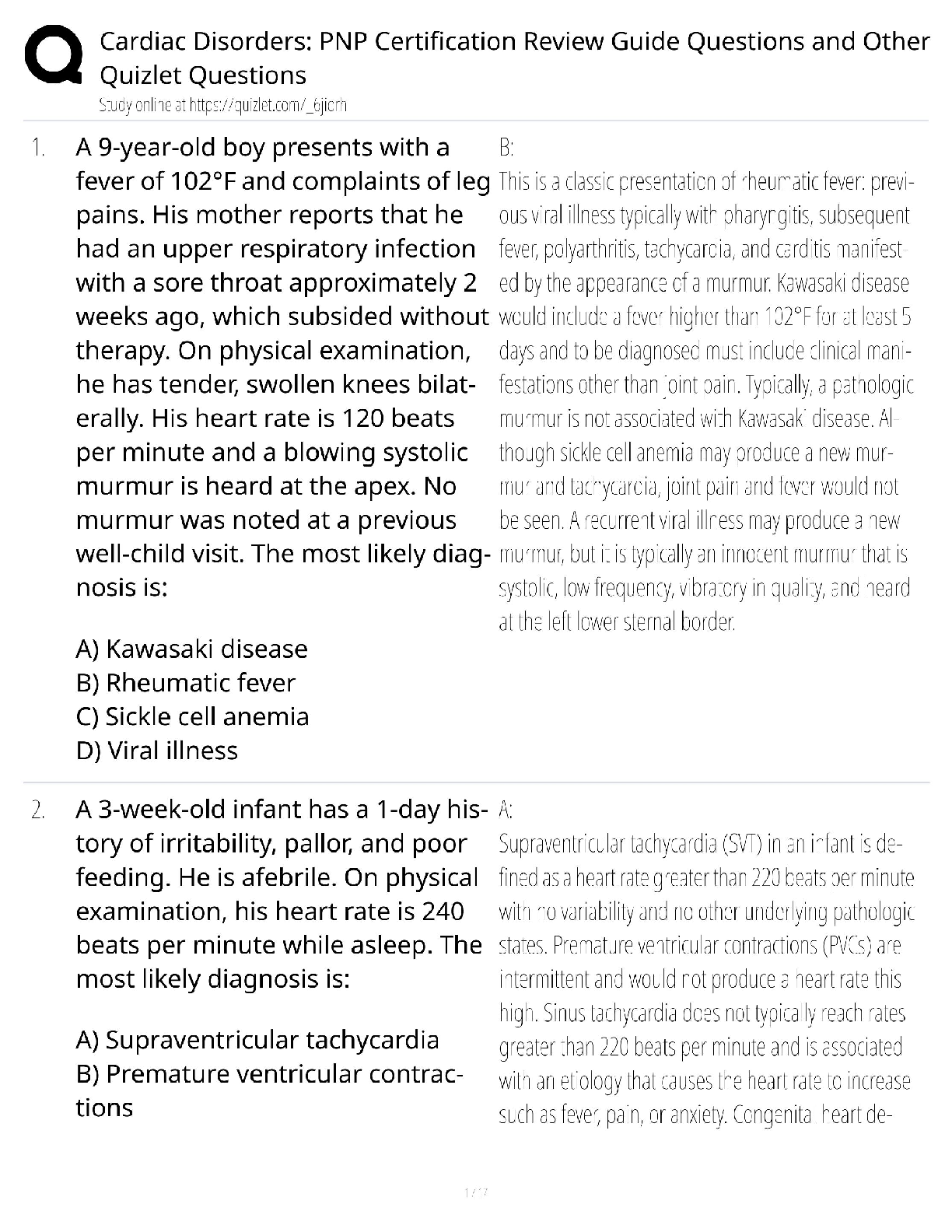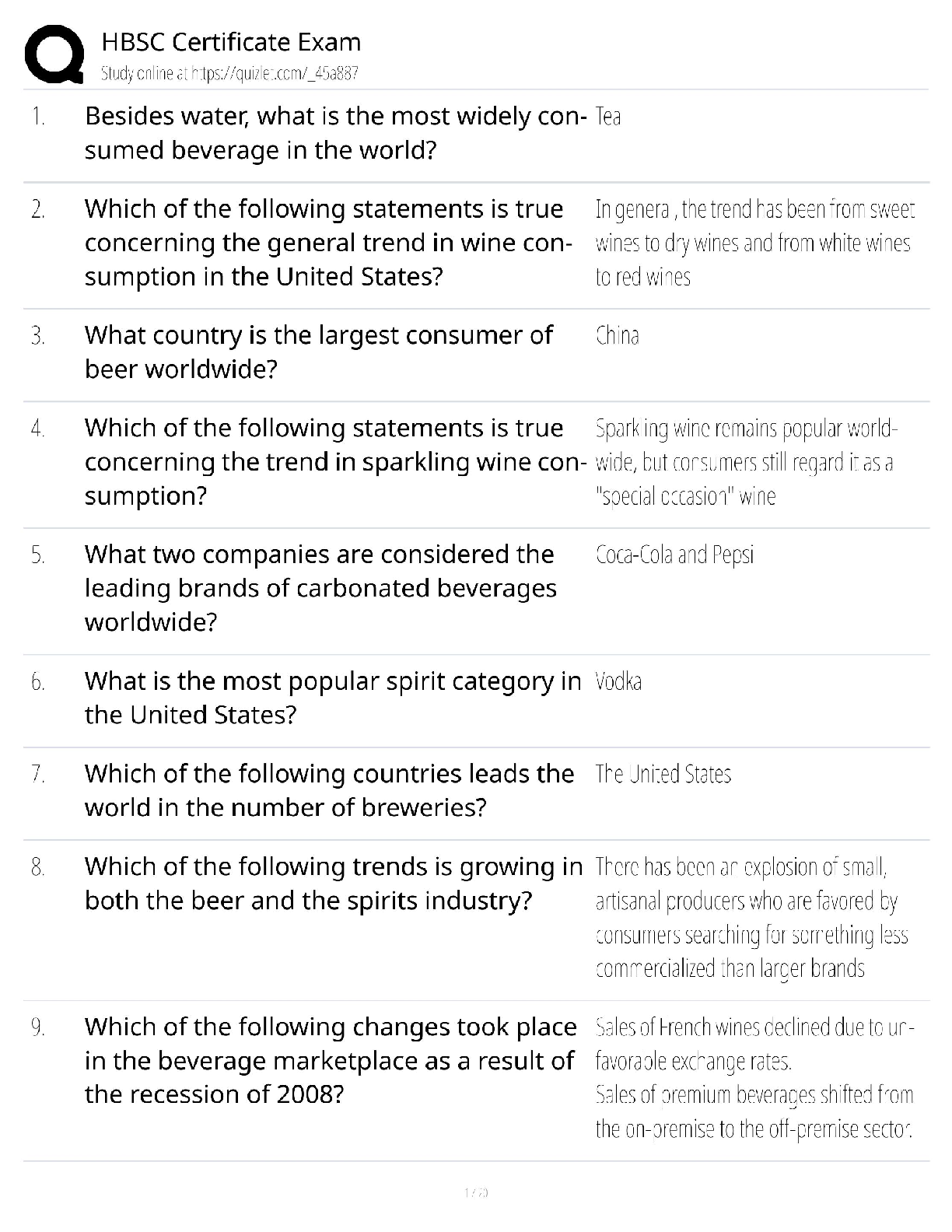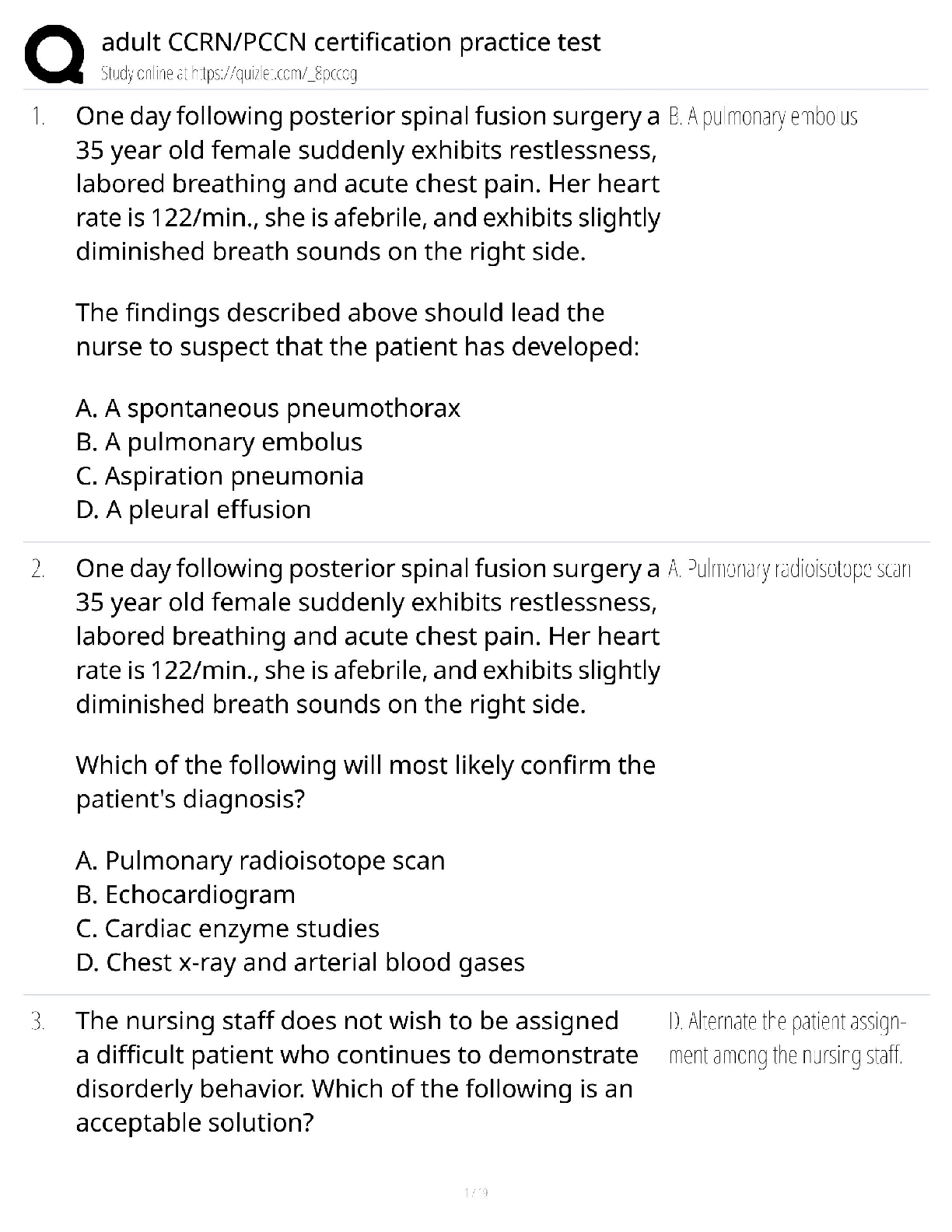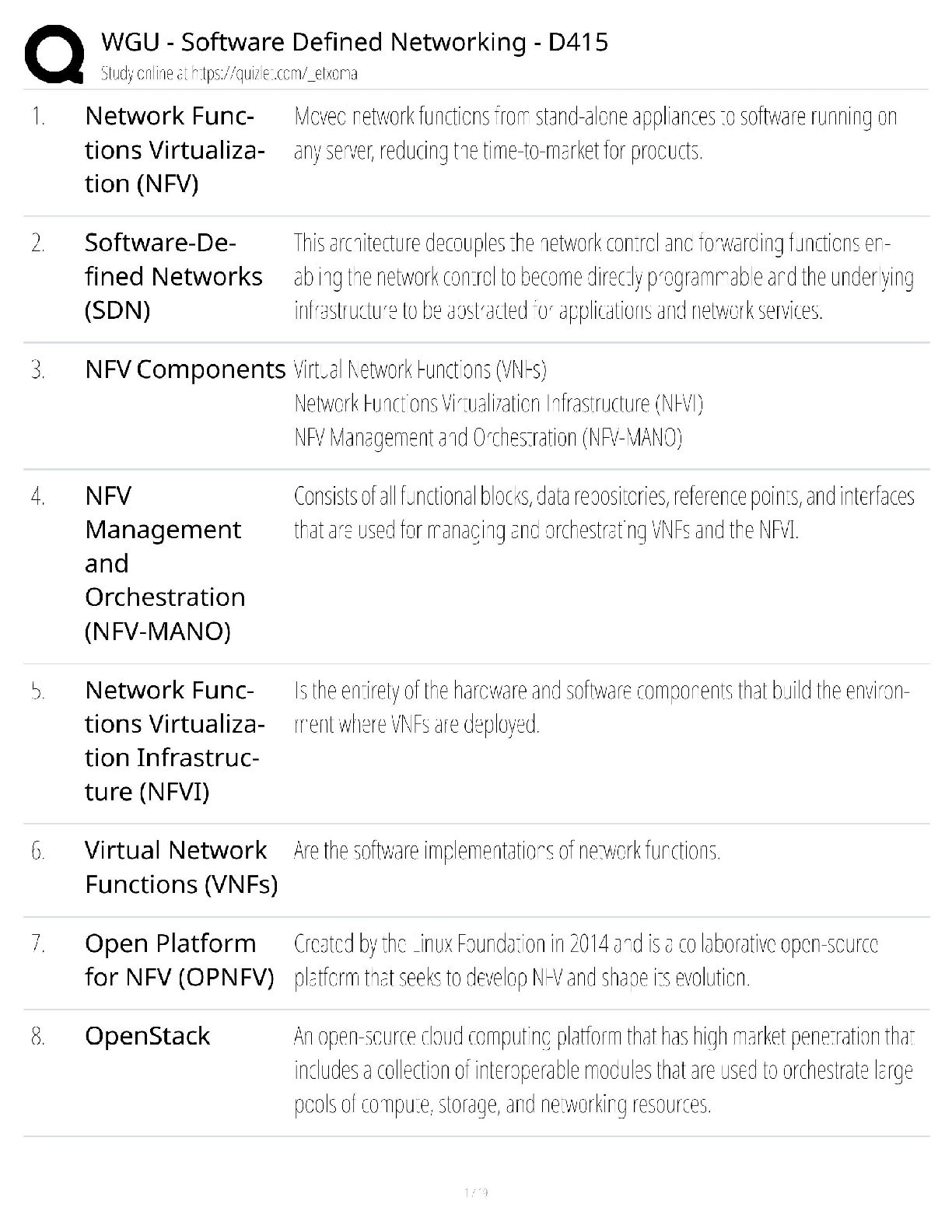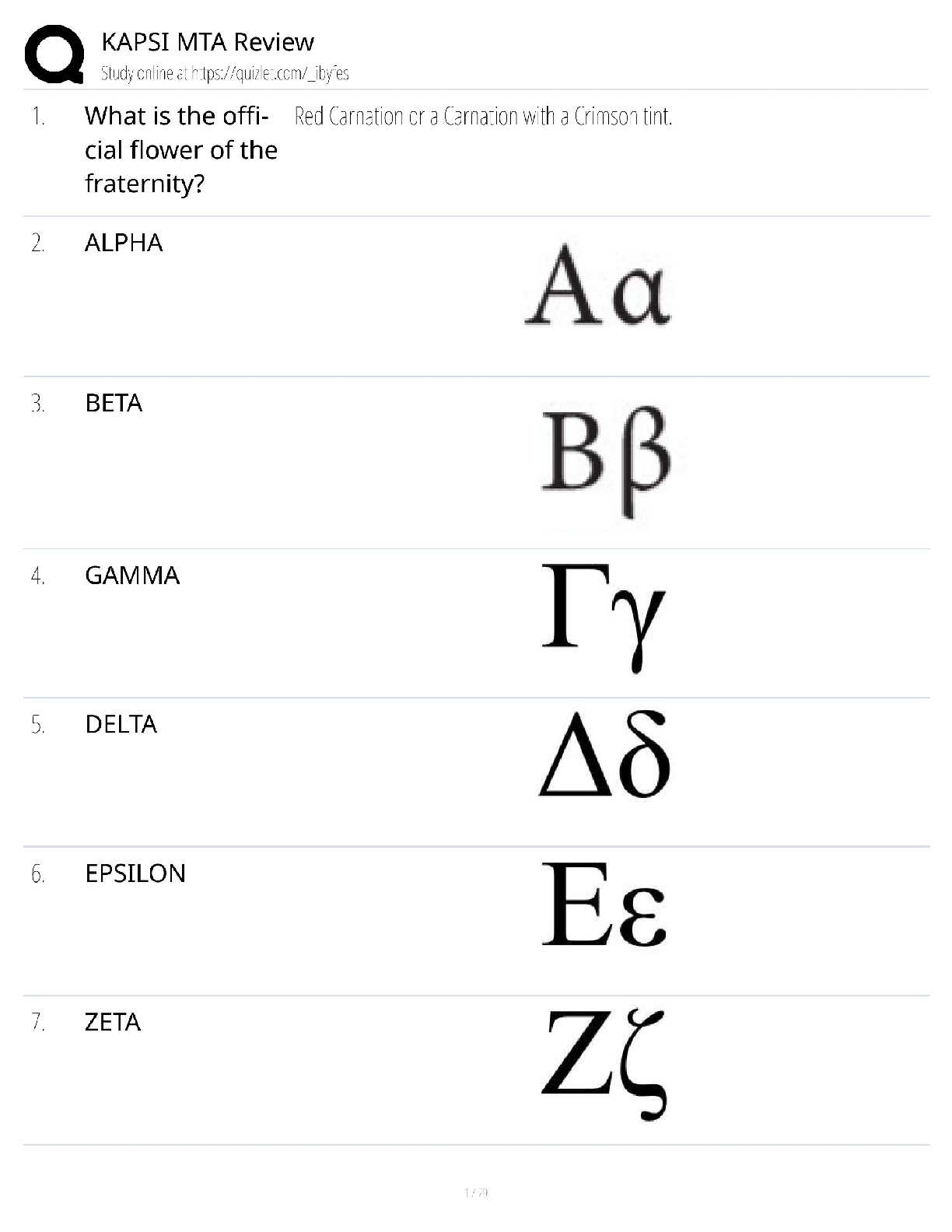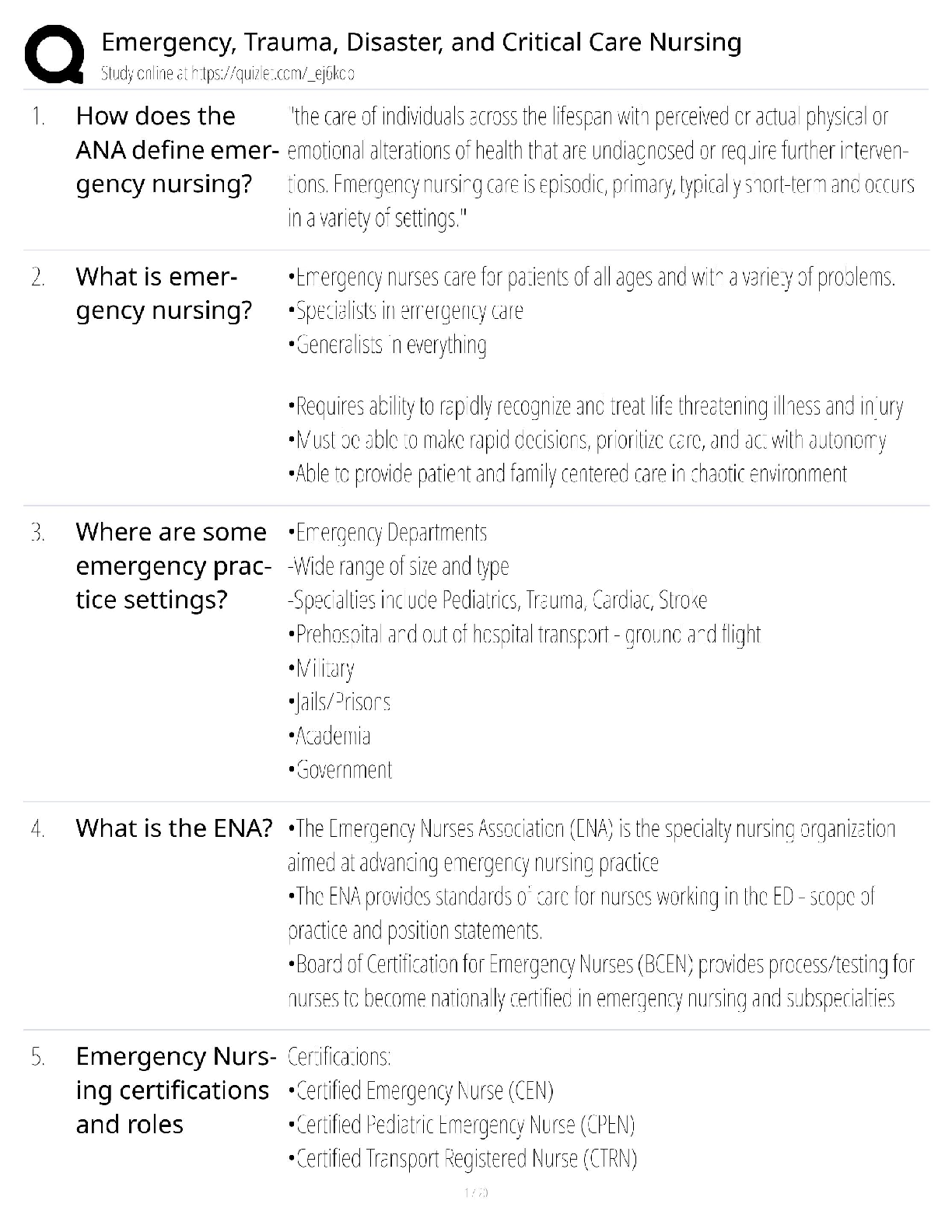Communication > QUESTIONS & ANSWERS > PS 102: From Error to Harm Questions and Answers Rated A+ (All)
PS 102: From Error to Harm Questions and Answers Rated A+
Document Content and Description Below
PS 102: From Error to Harm Questions and Answers Rated A+ Swiss cheese model of accident causation -✔✔ the idea that harm is caused by a series of systemic failures in the presence of hazard. ... Latent conditions -✔✔ are defects in the design and organization of processes and systems; things like poor equipment design, inadequate training, or insufficient resources. These errors are often unrecognized or just become accepted aspects of the work, and their effects are delayed. Active failures -✔✔ errors whose effects are felt immediately. Active failures are generally readily apparent — e.g., someone pushing an incorrect button or ignoring a warning light — and almost always involve someone at the front line. While the person on the front line — the doctor, nurse, or pharmacist — might be the proximal "cause" of the active error, the real root causes of the error have often been present within the system for a long time Two women — one named Camilla Tyler, the other named Camilla Taylor — arrive at a particularly busy emergency department at about the same time. Ms. Tyler needs a sedative, and Ms. Taylor needs an antibiotic. The doctor orders the medications but mixes up the patients when filling out the order sheets. The pharmacist dispenses the medications as ordered, and the nurse administers an antibiotic to Ms. Tyler and a sedative to Ms. Taylor. What is one of the latent errors in this scenario? (A) The emergency department is particularly busy. (B) The nurse administers an antibiotic to Ms. Tyler and a sedative to Ms. Taylor. (C) The forms are completed by hand at the same time for different patients. (D) The two patients in this case have very similar names. -✔✔ The forms are completed by hand at the same time for different patients. Latent errors would include any systemic problems that allowed the potential for an active error to occur and lead to patient harm. In this case, the fact that the forms were completed by hand at the same time for different patients turned out to be a latent error. The busy department and patients with similar names were not errors; they are just inherently challenging qualities of the system. What is the active error in this scenario? (A) The forms are completed by hand at the same time for different patients. (B) The emergency department is particularly busy. (C) The pharmacist doesn't notice that the order sheets are incorrectly filled out. (D) The nurse administers an antibiotic to Ms. Tyler and a sedative to Ms. Taylor. -✔✔ The nurse administers an antibiotic to Ms. Tyler and a sedative to Ms. Taylor. The active error is the human error that led to patient harm. In this case, it's the nurse administering an antibiotic to Ms. Tyler and a sedative to Ms. Taylor. "Knowledge-based errors" are best defined as: (A) Errors in the design and organization of processes and systems (B) Errors in problem-solving and decision making (C) Errors in patient care that don't result in injury and thus go undetected (D) Errors in automatic functioning -✔✔ Errors in problem-solving and decision making A "knowledge-based error" is an error in problem-solving and decision making. In contrast to automatic thinking, problem-solving is slow, conscious, sequential, and often requires considerable effort. Errors in automatic functioning are called "slips." [Show More]
Last updated: 2 years ago
Preview 1 out of 9 pages

Buy this document to get the full access instantly
Instant Download Access after purchase
Buy NowInstant download
We Accept:

Also available in bundle (1)
Click Below to Access Bundle(s)

PS 102 Exams Bundled Together with complete solutions Questions and Answers (Verified Answers)(Full Solution Pack)
IHI PS 102 Questions and Answers Graded A PS 102 From error to harm questions and answers rated A+ PS 102: From Error to Harm Questions and Answers PS 102: From Error to Harm Questions and An...
By Crescent 2 years ago
$14
6
Reviews( 0 )
$9.00
Can't find what you want? Try our AI powered Search
Document information
Connected school, study & course
About the document
Uploaded On
Feb 15, 2023
Number of pages
9
Written in
All
Additional information
This document has been written for:
Uploaded
Feb 15, 2023
Downloads
0
Views
151

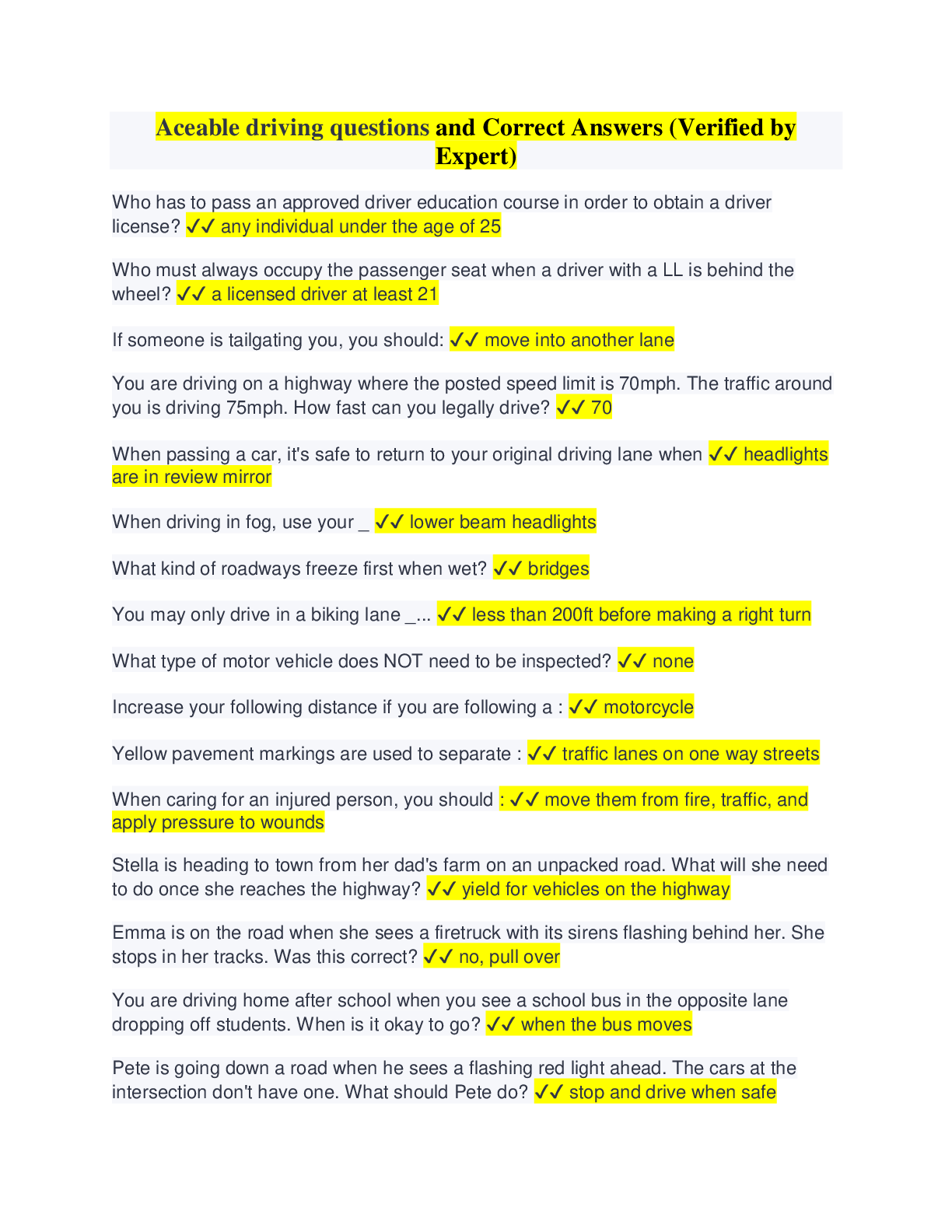

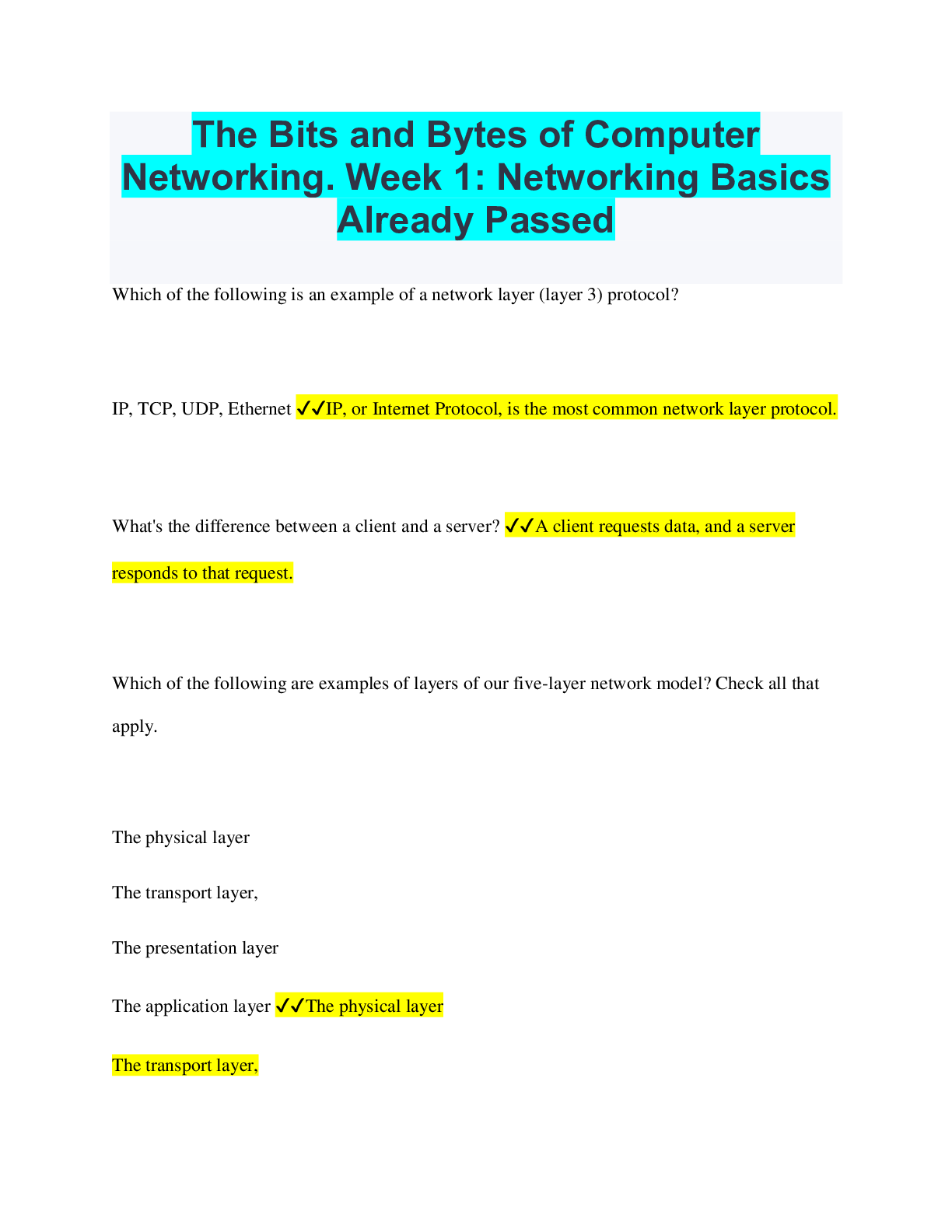
 Answered 2023.png)


